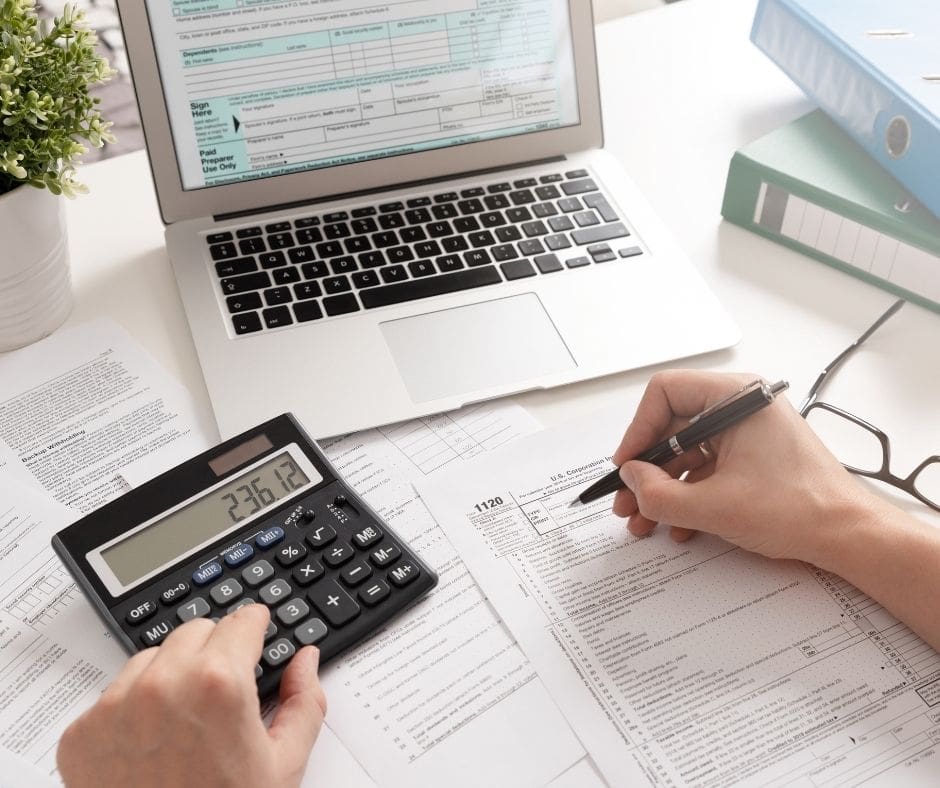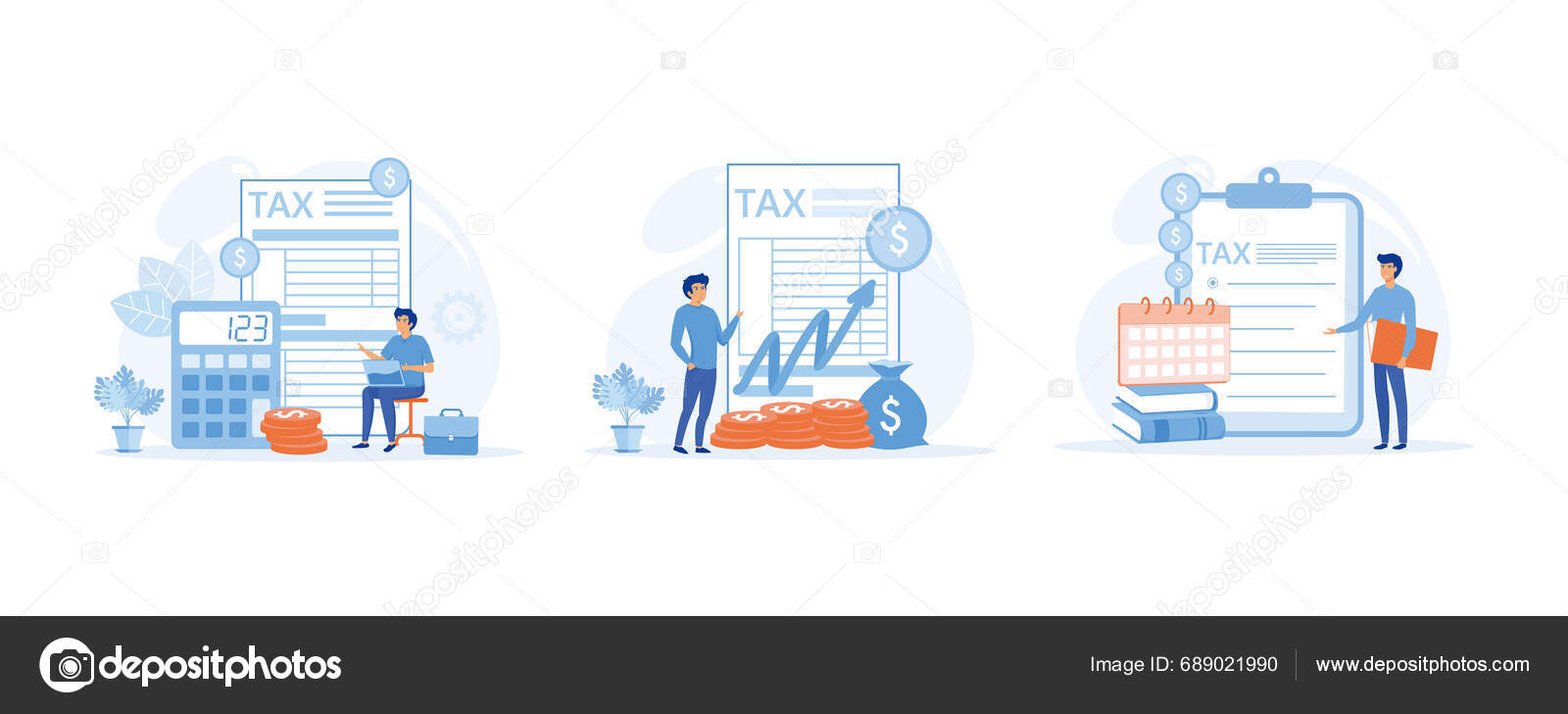5 Essential Documents for Tax Preparation Services

Tax season can be a time of stress and confusion, particularly if one isn't adequately prepared. Whether you are filing taxes as an individual or running a business, having the right documents on hand is critical to streamline the tax preparation process, maximize deductions, and ensure compliance with tax laws. Here, we delve into the five essential documents every person or business should have ready when preparing taxes:
1. Personal Identification and Tax Forms

Before delving into financial records, personal identification is the first essential document for tax preparation. This includes:
- Social Security Card or Tax ID - This verifies your identity and links you to your tax filings.
- Previous Year’s Tax Returns - Reviewing your previous year’s filing can provide valuable insights into what might be needed for the current year, and ensure continuity in your tax history.
Income-Related Documents

To accurately report your income, gather all the following income-related documents:
- W-2 Forms - Employers issue these for wage income.
- 1099 Forms - There are various types:
- 1099-NEC for nonemployee compensation from freelance work or gigs.
- 1099-MISC for miscellaneous income, like rent payments.
- 1099-INT, 1099-DIV, 1099-G for interest, dividends, and government payments respectively.
- Form 1098 - This includes mortgage interest or student loan interest payments.
- Schedules (like Schedule C, Schedule E, etc.) - These are necessary for businesses and rental property income.
Expenses and Deductions

Organizing your expense records is equally important for identifying potential deductions:
- Receipts for Charitable Contributions - You need these to itemize deductions.
- Business or Travel Expense Receipts - Keeping a detailed record of business-related expenses can significantly lower your taxable income.
- Medical and Dental Expense Receipts - These can be itemized if they exceed certain thresholds.
Investment and Asset Information

Investment-related documents help in reporting capital gains or losses:
- 1099-B - Records sales of stocks, bonds, or other investments.
- 1099-S - For real estate transactions.
- Statements of Income from Investments - If you receive dividends or interest from investments, you need these statements.
2. Financial Statements and Records

Financial statements provide a clear picture of your financial position:
- Bank and Credit Card Statements - These can help identify business expenses, mortgage interest, or other deductible items.
- Profit and Loss Statements - For business owners, a P&L statement or income statement is vital.
- Balance Sheets - Reflect the financial health of your business at a point in time.
- Ledger or Accounting Software Reports - Detailed logs of income and expenses.
3. Retirement and Health Saving Accounts (HSAs)

Contribution and distribution information for retirement accounts, such as:
- 401(k) Statements
- IRA Statements
- Health Savings Account (HSA) Statements - Contributions to HSAs are tax-deductible, and certain medical expenses can be paid tax-free from these accounts.
4. Records of Tax Payments and Estimated Tax Payments

To prevent overpaying or underpaying taxes, keep records of:
- Vouchers and Payment Records - Any estimated tax payments made throughout the year.
- Proof of Tax Withholdings - Found on your W-2 or 1099 forms.
- Property Tax Payment Receipts - For those eligible to itemize property taxes.
5. Miscellaneous Documentation

Lastly, certain miscellaneous documents might also be necessary:
- Alimony Payment Receipts - If applicable, these can reduce taxable income.
- Education-related Documents - Such as 1098-T for tuition or student loan interest deductions.
- Dependent Information - If you have children or support others, include their information for dependent-related tax credits and deductions.
💡 Note: Keep these documents organized and easily accessible, as they are essential for preparing an accurate tax return.
In wrapping up, having these five key documents ready can significantly reduce the anxiety of tax season. By ensuring you have all your personal identification, income statements, expense records, investment documents, and records of tax payments, you're not only facilitating a smoother tax preparation process but also setting yourself up for potential savings through accurate deductions and credits. Keeping thorough and organized records throughout the year will further simplify this process, ensuring you're always prepared for tax time, with minimal last-minute scrambling. Understanding your financial position, accurately reporting income and identifying deductible expenses can lead to a more favorable tax situation.
Why do I need previous year’s tax returns?

+
Previous year’s tax returns help to verify your tax history, providing continuity, and ensuring that you’re carrying forward any relevant data like carryover losses or credits.
What should I do if I receive income without any tax forms?

+
If you receive income without a form, you still need to report it on your tax return. Keep records of payments and any agreements or contracts to show that the income was earned.
Can I deduct expenses without receipts?

+
While having receipts is the best practice, some expenses might still be deductible with bank or credit card statements, though this can be scrutinized by the IRS if they audit your return.
How long should I keep my tax documents?

+
The IRS generally recommends keeping tax documents for at least three years from the date you filed, or two years from when you paid the tax, whichever is longer. However, keep them longer if there are special circumstances like unreported income or fraudulent claims.